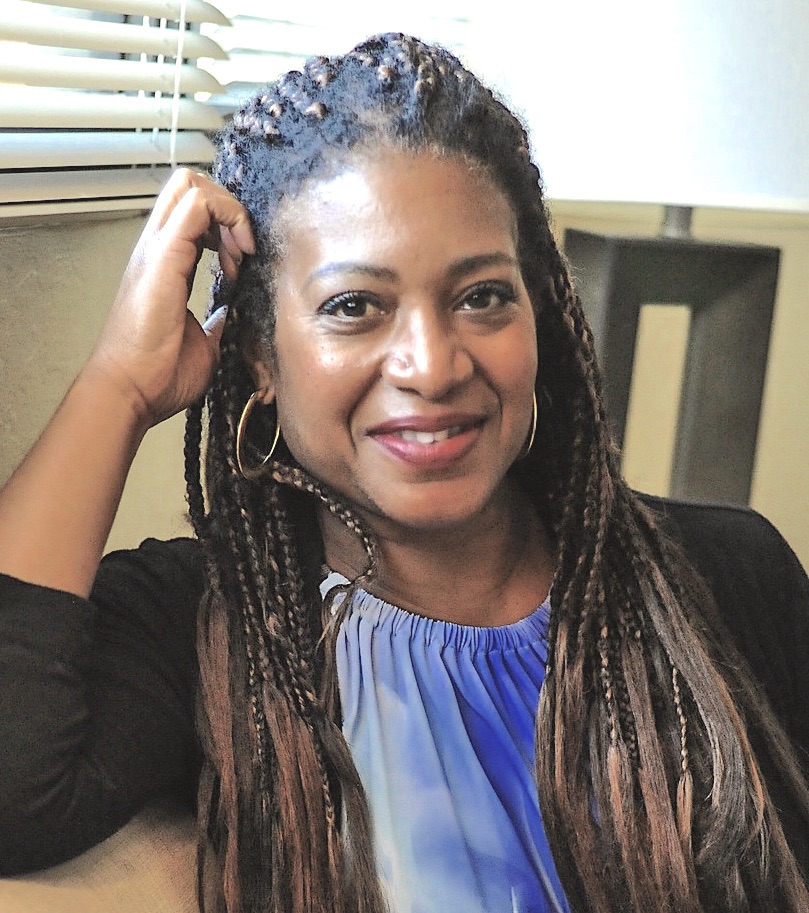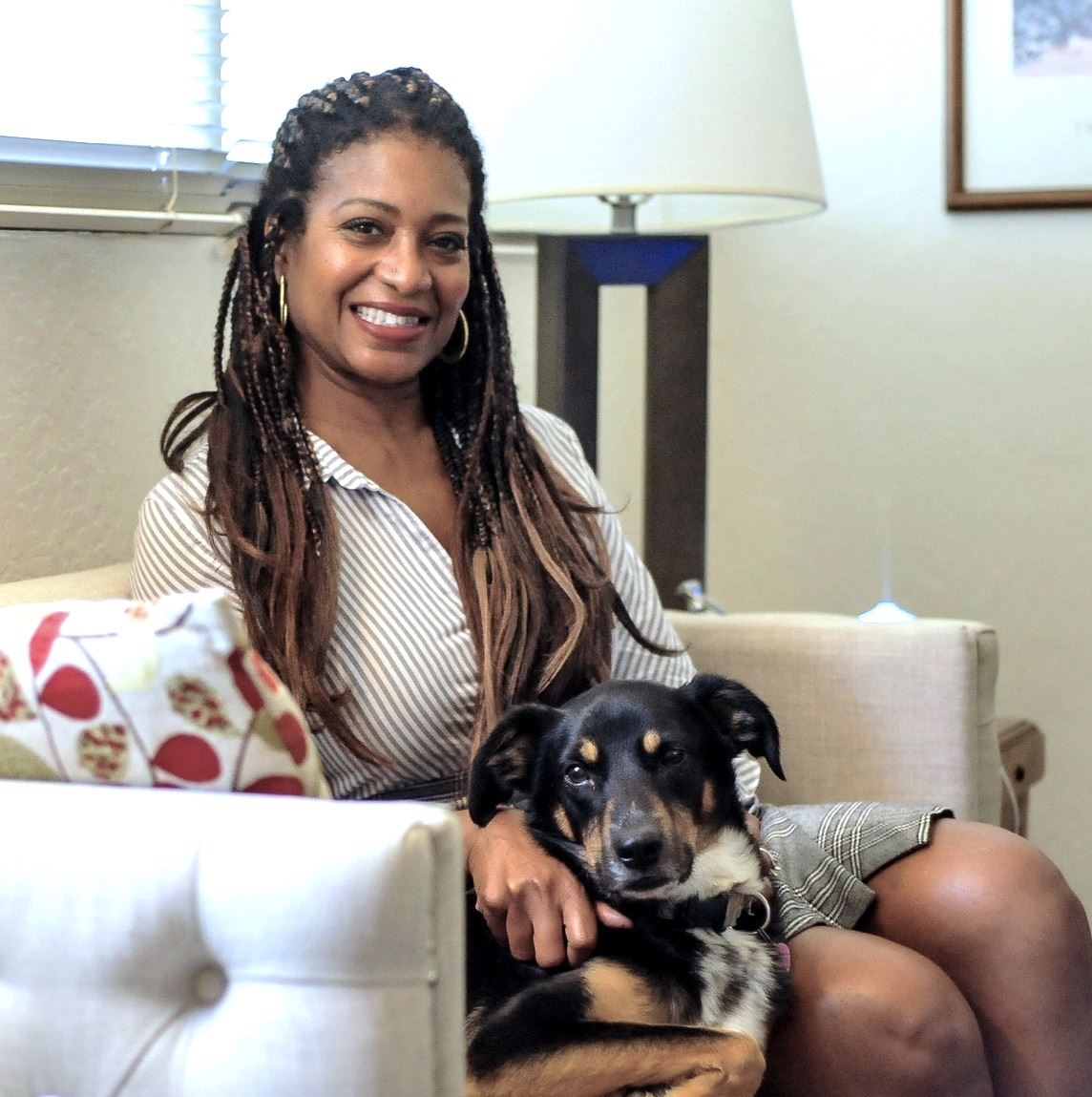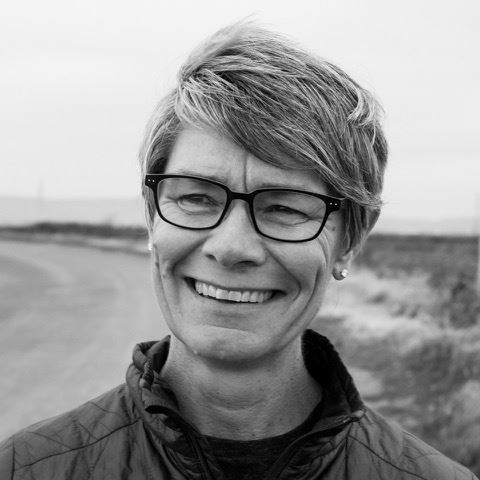back to Fall 2020 Newsletter
 Interviewed by Rowena Dodson, LMFT, Director-at-Large
Interviewed by Rowena Dodson, LMFT, Director-at-Large
Maritza Henry has been a Licensed Marriage and Family Therapist since 2001. Maritza is the Director of School Based Services at Family & Children Services of Silicon Valley (FCS), a division of the nonprofit organization Caminar. She also provides clinical supervision for the agency's following programs: Outpatient Mental Health, Substance Abuse, Intimate Partner Violence and School Based Services. She has a part-time private practice in San Jose.
Rowena: Hi, Maritza. Nice to meet you face to face, over zoom! How are you
Maritza: I'm good, thank you. It’s been a good day.
R: Where are you right now?
M: I'm actually in my office. It’s quiet, I don’t have any little 11 year olds knocking on my door, or dogs barking, so it’s uninterrupted space.
R: Thank you so much for agreeing to be interviewed, to be in the newsletter
M: Well, thank you! It’s an honor.
R: When did you start practicing, and can you tell us a little bit about your private practice and your agency work?
M: I got licensed in 2001 and moved to San Jose from L.A. County in 2006. I landed a temporary position working as a clinical supervisor at Family and Children Services of Silicon Valley (now Family and Children Services, a Division of Caminar). I stayed on and now am director of school-based services. It’s a behavioral and mental health nonprofit agency that serves populations from birth to elderly age. We have outpatient counseling services, school-based programs, substance abuse programs, an intimate partner violence program, services for the LGBTQ population. I also have a private practice that I started in 2008, part time.
R: It sounds like a lot, especially with an 11 year old at home.
M: Yah, it's a lot! At our agency, we serve a majority of people who are otherwise underserved. It’s nice to be in the trenches with that and never lose sight that there are so many communities needing support. And then, it’s nice to have my private practice where I work with people who have more privileges. I like the balance.
R: What was your path to becoming a therapist?
M: As young as 9 years old, I knew I wanted to be a therapist. I didn’t quite know yet what it was called! But I was always fascinated by human beings, their behaviors, and their emotionality. I became very adept at being comfortable in any situation, in any area where there was diversity or differences. I learned to understand the nuances or idioms that people were expressing. So that’s, I think, what led me to becoming a therapist. As I got older I realized, “oh this is what this is, Psychology.” In college I majored in Psychology and minored in Sociology and Italian Studies. I lived in other countries, traveled a lot, and that expanded my knowledge of different cultures. Once I came back from living in London and in Scotland for awhile, I decided to go to grad school, enrolled at Antioch University and got my Masters in Clinical Psychology.
R: What aspects of being a therapist do you most enjoy?
M: At Family and Children Services, being a director of a program that allows us to be really innovative has been probably the most enjoyable experience. Getting at these embedded structures and cultures we see in schools and being able to go in there and gently introduce another way. We’ve done a lot of trauma-informed support for schools. And it’s nice to see schools shift from a kind of punitive to a more trauma-informed approach and understand the Adverse Childhood Experiences (ACEs) perspective when working with kids. These are multi-year programs. But I love seeing that kind of paradigm and cultural shift.
R: That’s huge.
M: And seeing the shift in teachers as well in terms of their feelings of efficacy, their feelings of compassion for themselves and for their students. It’s something that I'd like to take to all school districts.
R: So that’s really creating systemic change instead of just dealing with one child at a time.
M: Exactly.
R: And what do you love about private practice?
M: In private practice I take a similar approach. I’m really into Nonviolent Communication, from Marshall Rosenberg. So, infusing that into my private practice along with Accelerated Experiential Dynamic Psychotherapy (AEDP). That’s a modality that is more emotion-focused. I love watching couples and families get to a place of healing, ones you’d never have thought would get to a place of healing.
R: Can you say more about how you’re working with couples, what approach you’re using?
M: I also use AEDP with couples, as well as Nonviolent Communication. I help couples be more aware of their common core emotions as well as their inhibitory emotions. And I get them to speak from a place of request as opposed to demand and be aware of what their own needs are, i.e. to feel important, to feel loved, to feel valued. We strive to deepen whatever emotions are coming up and to be able to track them; becoming more aware of their trauma triggers and sitting with it and working through it so they don’t bring it into the space of the relationship. It’s a very hands-on approach and I’m still learning.
R: Do you have couples read the book on Nonviolent Communication?
M: No, I don’t give couples homework, that’s more on the cognitive side and I try to stay more in the realm of emotions and experience. Everything is very in the moment, being able to take in that experience of their feeling a sense of comfort, the partner being able to experience and share in that as well, what does it feel like to see your partner smile?
R: I know you supervise interns and licensed therapists. What would you like them to take away from this time that they’re working with you.
M: That’s a great question. I want them to really feel comfortable in their skin and be able to sit with other people’s discomfort and emotionality while being very aware of their emotionality. Sometimes we, as therapists, think we're comfortable with our emotional expression, but I’m learning that sometimes we’re not. If you are not comfortable with your emotional expression, your core emotions, then it’s "how do you expect your clients to feel comfortable with their core emotions?" I work with my staff on their countertransference. But, I also want my therapists to know what they’re doing in the room and to name it, to be able to identify: what interventions am I doing and why am I doing them?
R: Are you seeing clients coming in with particular issues because of COVID and because of the racial justice protests that are happening right now?
M: Right, you know one could say we’re having two pandemics right now. On the one hand, there are individuals who are doing better, feeling less anxious, maybe thanks to shelter in place. If their anxiety was rooted in the fast-paced nature of this area, being able to slow it down, work from home and not having to commute actually has decreased their anxiety. Other clients are struggling with the uncertainty of COVID and asking—what does this mean for me, and for my future? My young adult clients who are in college and who had to go back home see their hopes and dreams halted for now. Add on top of all this, our second pandemic, which is the cry for racial and social justice and equity. That too, for some people, is creating some anxiety. And for others, it’s creating a sense of vigor, excitement and feeling ready for structural and institutional change. Again, it’s just meeting my clients where they’re at. I’m having some great conversations with some of my Caucasian clients who are asking how I’m doing. But also finding out—what’s it like for you and me being in this space together, given everything that’s going on. Really acknowledging our differences, what’s happening in the world, and seeing how that is for our relationship. I’m really comfortable talking about race so that frees my clients to be comfortable talking about race. I call it the “Corona bonus” because if we didn’t have this Coronavirus, we wouldn’t be at this place with the movement for social and racial justice. I love the fact that the whole world is watching, is concerned about the planet, and concerned about racial injustice. And I’m hopeful that we will see some structural changes. Maybe not in my lifetime. But already I’m seeing some really amazing changes. This is an honorable time to be alive, as difficult as it is. I want to acknowledge that this is a scary time as well for many who are greatly impacted financially.
R: I love how you’re opening up the space to have these kinds of conversations in your sessions about race, which a lot of us find difficult to have in our normal lives. We should be having those more often, right?
M: Yes, I agree, why not? We should be.
R: Are there any ways that you see, and I ask since I am on the board of SCV-CAMFT and would love your thoughts, that we could or should be more involved with social and racial justice issues in this moment?
M: Well, yes, given that there is no place that race and racism do not touch in our society, right? It’s our ethical duty as a profession to examine biases that impact our work. Regardless of whether our practice focuses on cultural sensitivity or cultural differences, we, as mental health practitioners, need to understand the history of this country, the effects of racism, and the daily micro-aggressions people of color experience, on mental health. It’s so important to not be color blind and to educate ourselves as much as possible. And it’s hard because we also don’t want to generalize, to use identity categories. Because there’s just as much diversity in one culture as there is amongst cultures. But the more we understand racism as probably an Adverse Childhood Experience and the more we can have a discussion of race and diversity in all of our trainings, the better. So much of what we learn in grad school comes from a very mainstream perspective. I remember trying certain interventions with people from different cultures and realizing, this is not working! (laughs). They’re looking at me like, what are you doing? It’s important to teach therapists how to have that discussion in the room without inflicting trauma itself, and being able to discuss when there has been trauma in somebody’s life. I am an Afro-Latina, raised in this country by parents from Costa Rica who came over here in the Jim Crow era with NO reference of racism because they came from a country where their identity was not determined by race. The Jim Crow era was very confusing to them. It was like, what? We cannot go into that movie theater?
R: That must have been horrible.
M: They had no reference for any of this, it was very weird. And so, I was raised with that same kind of naïveté or ignorance in a way. People would make assumptions about who I am just because of the color of my skin, and it was like—you have no idea who I am, you have no idea what kind of food I eat, what kind of music we listen to and what kind of language is spoken in the house, you have NO idea. But having that assumption placed on me based on the color of my skin also drove me to look at each person and not make ANY assumptions about how ethnocentric they are. So I would hope that it's both: knowing our history, knowing our country was built on racism, understanding the structure of racism and how it impacts our clients of color, and keeping that in mind as we are treating them. And, and this is really important, in every single training we have, to talk about race, every single one. Does this modality really transfer over to different cultures? Does it really work?
R: It’s a high bar, isn’t it? And we can keep working towards it. We can do better.
M: Totally. There’s so much material out there, articles, books, podcasts. It’s just people once in awhile taking the time to read or familiarize themselves with something, as a start.
R: I agree. Thank you for that. On a personal note, what are you reading right now?
M: I’m reading a few things. I’m one of those people who reads a lot of books and I jump around. I like audio books and I like to clean, fold clothes and listen. I’m reading Loving Like You Mean It, by Ronald J. Frederick. That’s coming from an AEDP framework. I’m also reading The Language of Love and Respect by Dr. Emerson Eggerichs. I’m more spiritual than Christian and it uses a lot of Christian values, which is good for me to hear. I’m also reading The ABCs of Diversity: Helping Kids and Ourselves Embrace Our Differences, by Carolyn Helsel. I’m reading it with my son. My son is biracial, actually he's tricultural, I should say: Latino, Black and White. He has a little mish-posh of differences in there. So that’s been fun to read with him. And I’m listening to a Nonviolent Communication training on YouTube.
R: All professional stuff!
M: Yes (laughs). I don’t read for pleasure. I mean, these are all pleasurable, believe me. But I tend to read for knowledge.
R: Do you have a favorite TV show right now?
M: I have a few of them. I like really bad reality TV!
R: Are you willing to disclose? (laughing)
M: I like 90 Day Fiancee!
R: Do you not want me to put this in the newsletter?
M: (laughing) I don’t care, it’s a huge part of who I am. It drives my husband crazy! I watch these—really, I don’t know—just bad reality TV shows, and I don’t know why it helps me. It's 90 Day Fiancee right now.
 R: OK, I’ll put that one down. I was going to ask you about self-care. It sounds like bad reality TV is part of your self-care.
R: OK, I’ll put that one down. I was going to ask you about self-care. It sounds like bad reality TV is part of your self-care.
M: Yes, that’s definitely part of my self-care. I work out. And, I’m not a yogi, but I do yoga. I try and goto bed by 10:00pm. I notice when I go to bed by 10:00, I am in a better space the next day. I have dogs, they’re my therapy, too. Spending time with my children and husband is pretty awesome. It’s just kind of a blend of all of it. I have really great girlfriends whom I have known for 20 years, amazing siblings and parents. Our connection and support for each other is strong.
R: Sounds like you have some good balance even with the demands.
M: It’s a work in progress, believe me.
R: Any particular quote or saying or scripture you’d like to share?
M: Yes, I do. Just a saying, one that I’ve been using lately especially in this COVID time. It’s one that I always tell my son or my friends or my family members,“You’re always in my heart.” Before we say goodbye, I say “You’re always in my heart.” Even when I’m graduating clients who have really touched me and I’ve had the pleasure of having a beautiful therapeutic relationship with, I tell them “You’re always here for me,” (gesturing to her heart). I just think it’s a nice way of letting them know that a part of you will always feel connected to them.
R: Maritza, thank you so much. I really enjoyed our conversation.
M: My pleasure.
 Rowena Dodson is on the SCV-CAMFT News committee, and has been a licensed therapist since 2016. She has a private practice in Mountain View, and works as a per diem therapist at El Camino Hospital adult outpatient behavioral programs. Her emphasis has been on helping adult clients find their voice and their power to shape the lives they want. She can be reached at director-at-large@scv-camft.org.
Rowena Dodson is on the SCV-CAMFT News committee, and has been a licensed therapist since 2016. She has a private practice in Mountain View, and works as a per diem therapist at El Camino Hospital adult outpatient behavioral programs. Her emphasis has been on helping adult clients find their voice and their power to shape the lives they want. She can be reached at director-at-large@scv-camft.org.
References:
Eggerichs, E. (2009). The Language of Love and Respect: Cracking the Communication Code With Your Mate. Nashville, TN: Thomas Nelson.
Frederick, R.J. (2019). Loving Like You Mean It: Use the Power of Emotional Mindfulness to Transform Your Relationships. Las Vegas, NV: Central Recovery Press.
Helsel, C.B. & Harris-Smith, Y.J. (2020). The ABCs of Diversity: Helping Kids (and Ourselves!) Embrace Our Differences. St. Louis, MO: Chalice Press.
Rosenberg, M. B. (1999). Nonviolent communication: A language of compassion. Del Mar, CA: PuddleDancer Press.
back to Fall 2020 Newsletter
